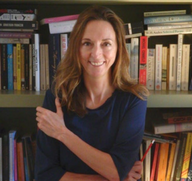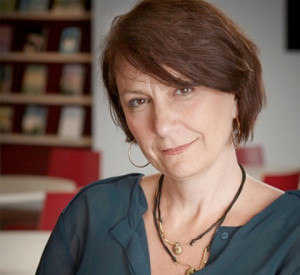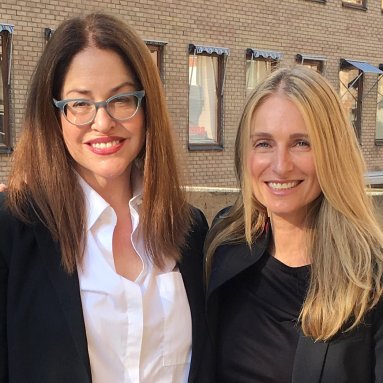
Natasha Fairweather joins RCW
thebookseller.com – Tuesday September 20, 2016

Natasha Fairweather, currently at United Agents, is set to join Rogers, Coleridge & White (RCW) in October.
Fairweather will be joining the board and taking up a senior role at Rogers, Coleridge & White.
She began her career as a literary agent at Curtis Brown in 1989, returning to the profession in 1999, at which point Fairweather joined AP Watt after a seven-year hiatus spent living and working in Jerusalem and Moscow. There Fairweather built a list of non-fiction writers including politicians, historians and journalists, and also represents a growing number of prize winning novelists. In 2012, when AP Watt was acquired by United Agents, Natasha became co-head of the newly-amalgamated book department.

‘The Irish Times’ travel writing competition
irishtimes.com – Saturday September 17, 2016

For the second year, The Irish Times, in conjunction with the Travel Department, is inviting aspiring writers to write a travel feature for consideration for publication in The Irish Times Magazine. The author of the best entry, as selected by our judges, will have their article published in print in The Irish Times Magazine, along with a travel-writing assignment abroad, also for publication in the Magazine.

Algorithms Could Save Book Publishing—But Ruin Novels
wired.com – Friday September 16, 2016

JODIE ARCHER HAD always been puzzled by the success ofThe Da Vinci Code. She’d worked for Penguin UK in the mid-2000s, when Dan Brown’s thriller had become a massive hit, and knew there was no way marketing alone would have led to 80 million copies sold. So what was it, then? Something magical about the words that Brown had strung together? Dumb luck? The questions stuck with her even after she left Penguin in 2007 to get a PhD in English at Stanford. There she met Matthew L. Jockers, a cofounder of the Stanford Literary Lab, whose work in text analysis had convinced him that computers could peer into books in a way that people never could.

How Dylan Thomas's writing shed inspired Roald Dahl
bbc.co.uk – Wednesday September 14, 2016

Both are world-famous authors who wrote some of their best known works in their sheds. But, as Roald Dahl's centenary is celebrated across the country, his widow reveals how heavily the children's author was influenced by Dylan Thomas's hut when building his own.

Steve Atkinson: HighTide started on a wave of changes in new writing
whatsonstage.com – Tuesday September 13, 2016

HighTide turns ten this year and the UK's premier new writing festival could not be in better shape. Since beginning in the small market town of Halesworth in Suffolk, they've championed the likes of Adam Brace, Sam Holcroft, Joel Horwood and Nick Payne, often staging debuts from those writers well before theatres like the National, Almeida and the Royal Court pick them up. As co-founder of the festival, director Steve Atkinson has been instrumental in pushing the festival artistically so it now stands as one of the most important new writing events in the UK calendar. Now, after they open at the festival's home of Aldeburgh, HighTide plays tour up and down the country, bringing bright, dynamic theatre voices to the rest of the world.
From Zero to Hero: the next generation of passionate publishers
thebookseller.com – Tuesday September 6, 2016
So it's back to school this week, and as relieved parents return to their desks, there will undoubtedly be some speculation about whether the complex summer holiday juggling might be made just a bit easier by running your own business. While flexibility might be one reason often cited for setting up a new business on your own, there are clearly many more complex motivations for making the leap. Some of the most exciting new publishing ventures to launch in recent years have had very varied motivations for getting started, but there are certainly some themes emerging across this next generation of publishers.
A Rough Six Months for Big Book Publishers
publishersweekly.com – Saturday September 3, 2016
The trade publishing segment has been operating in a low-growth environment for several years, and that trend appears to have continued into 2016. Financial reports for the first half of 2016 from five major publishers showed that none of the companies had a sales increase in the first half of the year; HarperCollins had the best top-line performance, with only a minor sales decline compared to the first six months of 2015. Earnings fell at three publishers in the period and rose at two. Though sales of print books have stabilized, all five reporting publishers said sales of e-books fell in the first six months of 2016 compared to the January–June 2015 period.

Unwin goes solo with 'dream' independent agency
thebookseller.com – Wednesday August 31, 2016

Jo Unwin is embarking on her “dream” of owning a fully-independent literary agency after nearly three years of working in association with Rogers, Coleridge and White (RCW).
The Jo Unwin Literary Agency Ltd (JULA) will be based in new offices in London’s Somerset House and she will continue to represent her roster of debut and bestselling authors including Kit de Waal, Nina Stibbe, Cathy Rentzenbrink, Richard Ayoade and Jenny Colgan, while looking to expand her list.
Feds Target "Predatory" Publishers
insidehighered.com – Monday August 29, 2016
The Federal Trade Commission on Friday filed a complaint against the academic journal publisher OMICS Group and two of its subsidiaries, saying the publisher deceives scholars and misrepresents the editorial rigor of its journals.

Why Indie Agency RWSG Sold to WME: "It Felt Like a Crossroads"
hollywoodreporter.com – Friday August 26, 2016

When literary agency Rabineau Wachter Sanford & Gillett agreed to be acquired by WME, the decision represented a recognition that in a changing market, an independent books-to-film firm — even one as respected as RWSG — might not have the resources needed to thrive.
Get the free newsletter | Submit a news item or article | Get Writers' News for your website





